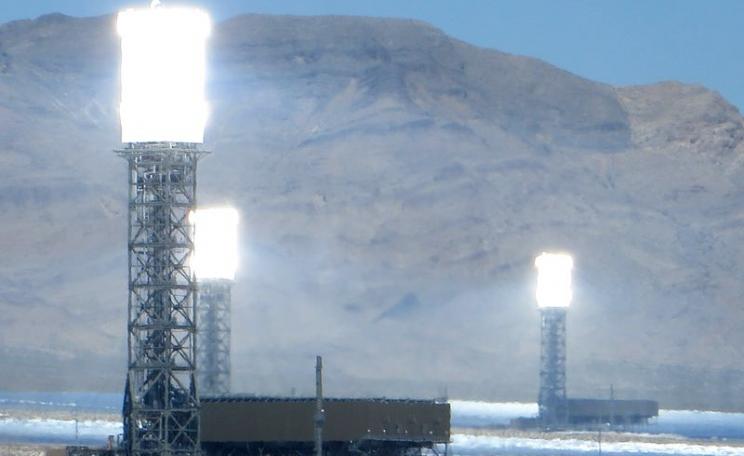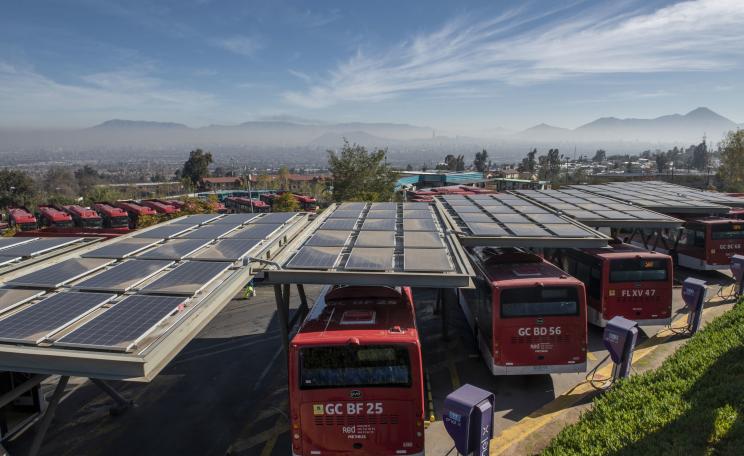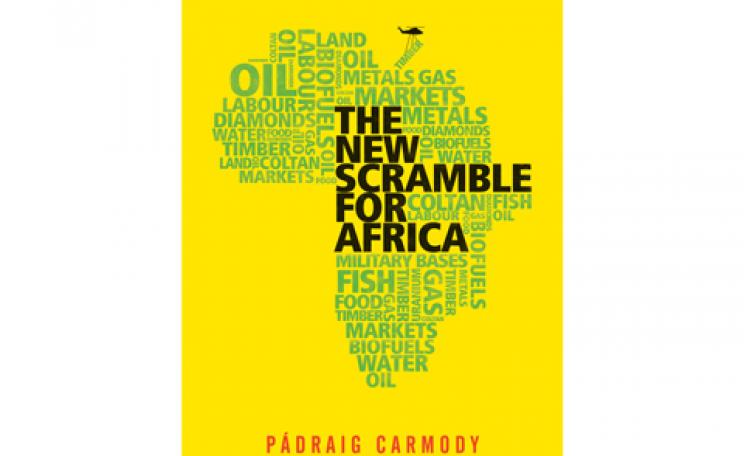Does the world really need another book on global warming? No matter how many more lines of peer-reviewed evidence is published, deniers will bury their heads deeper into the sand. Meanwhile those who believe what 99 per cent of climate scientists are saying simply get angrier at the inaction of governments. And it is the inaction of governments that is highlighted in Fast Forward. Authors William Antholis and Strobe Talbott come with a certain political clout. Talbott was once a US Deputy Secretary of State while Antholis served on the White House National Security Council staff and was a US Negotiator of the Kyoto Protocol.
Before getting to the politics, the authors do a splendid job of outlining the immediate challenge that climate change presents. In a single chapter, they outline the lines of scientific evidence for climate change by way of a brief history of the Earth. Their science is sound; the importance of tackling global warming is clear for all to see. They are not denying what the science tells us. Antholis and Talbott then draw comparisons with the proliferation of nuclear weapons during the Cold War. ‘The basic similarity between the Nuclear Age and the Age of Global Warming is that, in both cases, a potentially existential threat has imposed an existential imperative – a priority that trumps all others…’
Fast Forward gets even more interesting as it delves into the intricacies of American domestic affairs. George H. W. Bush was the first president to ‘recognise that the Age of Global Warming had begun’ by signing into law the U.S. Global Change Research Act and the Clean Air Act of 1990. Antholis and Talbott provide a brief history of the late 1990’s climate talks, notably the Rio Earth Summit, the 1997 G8 Summit in Denver and, of course, the Kyoto Protocol, They are surprisingly honest about the role of the United States in driving the wrecking ball through Kyoto before it even happened, highlighting the impact of domestic policies on international treaties. Today, greenhouse gas emissions are increasing at an alarming rate, revealing what we all now know: that the Kyoto Protocol was hamstrung and spectacularly ineffective, despite the spin to the contrary. Next up is the spectacular failure of the Copenhagen conference, for which Antholis and Talbott present a quixotic view of Obama’s performance in saving that agreement from being the total disaster. In particular, criticism is levelled at the Chinese delegates – yet again, another major nation prevented a consensus being reached.
What this book begins to reveal is a frontline account of nations failing to agree on anything and the triumph of nationalism and domestic policies over co-operation and a long-term vision. The failure of the UN has been, ‘in large measure, the flip side of its virtue… The smallest, poorest and weakest countries have a forum where they can be heard along with the largest, strongest and most prosperous. That capacious representation is particularly important on the issue of climate change since small and poor nations are among the most vulnerable to desertification and flooding. Yet the UN is too large, too inclusive, and too limited in its authority to move quickly and decisively.’
Perhaps, the authors suggest, change will need to occur on a smaller level. The success of the European Union is noted, which has ‘acted more effectively’ than the others that make up the ‘big four’: India, China and the US. There is hope, too, in federal laws that will help reduce emissions (though any cap-and-trade schemes would be limited to electric power utilities, and not, presumably, the heavy emitters such as the gas and oil industry). All in all, despite concerns, there is some political will in the United States. Antholis and Talbott also discuss the rise of India and China, two of the biggest countries in the world, two nations with huge amounts to lose directly as a result of the effects of climate change. They have their own energy concerns, too – what should they use if they can’t use coal? The potential importance of nuclear power is mooted, without much acknowledgement of any drawbacks other than proliferation of nuclear weapons.
The book finishes on a crescendo of philosophy, ambition, challenges and hopes. The authors know their science and are clearly well read. They know the challenges and are honest about failings. However, there is not, on the evidence presented in Fast Forward, much to be optimistic about. To slow down climate change, they declare, ‘will depend on nothing less than a revolution in global civics.’ I don’t think we can reply upon international diplomacy alone to do that. It must be stressed that this remains a fascinating and well-intentioned offering – a quick, well-written, educated and referenced glimpse into US domestic politics and how it plays out on the international stage. It contains the kind of digestible information that would benefit those in business and industry, with just the right amount of can-do spirit to rally blind optimists, and should not be dismissed; it is a book with a particular audience. For the rest of us, it’s not likely to convince us that a global deal on climate change will ever happen.
Fast Forward: Ethics and Politics in the Age of Global Warming by William Antholis and Strobe Talbott (£12.99, Brookings Focus Books) is available from Amazon
Mark Newton has a degree in Environmental Science and is a genre novelist for Pan Macmillan. He blogs at markcnewton.com, or you can find him on Twitter at twitter.com/MarkCN
| READ MORE... | |
 |
REVIEW An Iceberg as Big as Manhattan David Shukman’s book is both an entertaining collection of a journalist’s tales and the perfect introduction to the environmental challenges facing the world today, says Gervase Poulden |
 |
REVIEW Earth in 100 Groundbreaking Discoveries Packing 4.5 billion years of history into 416 pages is a truly Herculean task, but it's one, says Hannah Corr, that Douglas Palmer has managed to do in style |
 |
REVIEW Climate Change Denial Haydn Washington and John Cook’s work has wise words for climate change activists and deniers alike, says Jeremy Williams |
 |
REVIEW The No-Nonsense Guide To Climate Change In his brisk guide to the complex issue of climate change, Danny Chivers is out to convince you that this problem is one for the here and now |
 |
REVIEW The New North: The World in 2050 by Laurence Smith Global weather patterns have always been unpredictable but current changes are being amplified by the impact of people, consumption and pollution. In The New North, Laurence Smith looks at what the next four decades could bring – both for the weather and for us |








